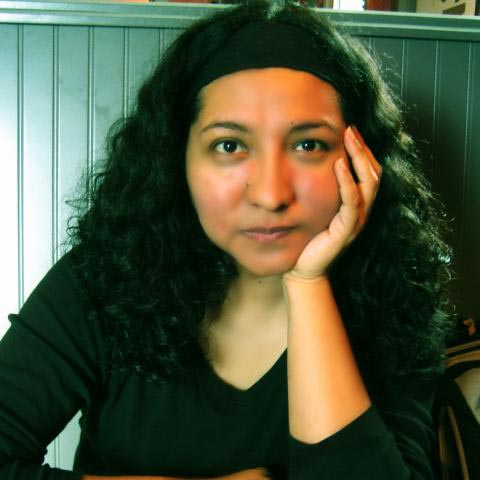Assoc. Professor González Hurtado Co-Edits Journal Lee Capristo January 30, 2024 - 9:45 am
January 30, 2024

Argelia González Hurtado, associate professor of Spanish, is co-editor of a dossier for the online academic journal Cuadernos del CILHA of the Interdisciplinary Center for Hispanic America Literature of the National University of Cuyo in Argentina. The dossier, titled "Redescubriendo el paisaje en el cine del siglo XXI: identidades, espacios y reconfiguraciones," comprises an introduction co-written by González Hurtado and Maria Soledad Paz-Mackay (of St. Francis Xavier University in Nova Scotia, Canada) and six essays that explore the role of cinematographic landscapes in recent Latin American cinema.
González Hurtado and Paz-Mackay note that the essays analyze how the landscape plays a vital role in recent Latin American cinema, especially as expressions of critical counter-politics that focus on the life of Latin American societies. Filmmakers use the landscape to present a personal and reflective vision of their societies. The essays highlight how peripheral landscapes, including rural and urban landscapes and the journeys between the two, are used in cinema to create critical meaning.
January 30, 2024

Argelia González Hurtado, associate professor of Spanish, is co-editor of a dossier for the online academic journal Cuadernos del CILHA of the Interdisciplinary Center for Hispanic America Literature of the National University of Cuyo in Argentina. The dossier, titled "Redescubriendo el paisaje en el cine del siglo XXI: identidades, espacios y reconfiguraciones," comprises an introduction co-written by González Hurtado and Maria Soledad Paz-Mackay (of St. Francis Xavier University in Nova Scotia, Canada) and six essays that explore the role of cinematographic landscapes in recent Latin American cinema.
González Hurtado and Paz-Mackay note that the essays analyze how the landscape plays a vital role in recent Latin American cinema, especially as expressions of critical counter-politics that focus on the life of Latin American societies. Filmmakers use the landscape to present a personal and reflective vision of their societies. The essays highlight how peripheral landscapes, including rural and urban landscapes and the journeys between the two, are used in cinema to create critical meaning.
